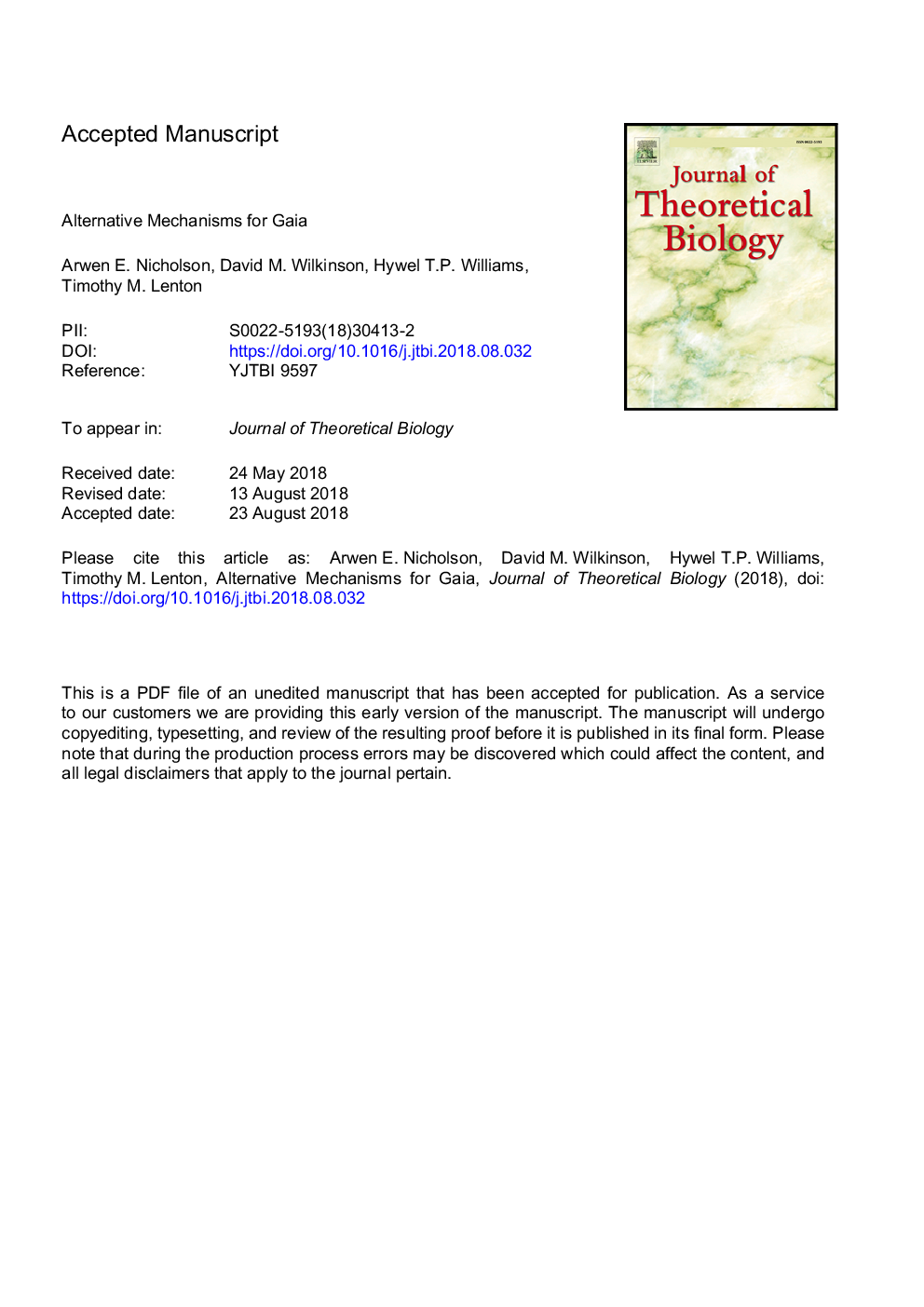| Article ID | Journal | Published Year | Pages | File Type |
|---|---|---|---|---|
| 10138699 | Journal of Theoretical Biology | 2018 | 24 Pages |
Abstract
A long-standing objection to the Gaia hypothesis has been a perceived lack of plausible mechanisms by which life on Earth could come to regulate its abiotic environment. A null hypothesis is survival by pure chance, by which any appearance of regulation on Earth is illusory and the persistence of life simply reflects the weak anthropic principle - it must have occurred for intelligent observers to ask the question. Recent work has proposed that persistence alone increases the chance that a biosphere will acquire further persistence-enhancing properties. Here we use a simple quantitative model to show that such 'selection by survival alone' can indeed increase the probability that a biosphere will persist in the future, relative to a baseline of pure chance. Adding environmental feedback to this model shows either an increased or decreased survival probability depending on the initial conditions. Feedback can hinder early life becoming established if initial conditions are poor, but feedback can also prevent systems from diverging too far from optimum environmental conditions and thus increase survival rates. The outstanding question remains the relative importance of each mechanism for the historical and continued persistence of life on Earth.
Related Topics
Life Sciences
Agricultural and Biological Sciences
Agricultural and Biological Sciences (General)
Authors
Arwen E. Nicholson, David M. Wilkinson, Hywel T.P. Williams, Timothy M. Lenton,
